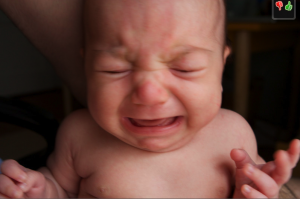 My nine-year-old son has never said “I love you”.
My nine-year-old son has never said “I love you”.
I honestly never gave it a second thought until I realized I was being told “I love you” multiple times daily by my five-year-old daughter. For the first time I began to wonder why my son never said it, neither to me nor to anybody else. And while I would never in a million years intimidate him into saying these words, the idea that he never said them made me a little sad.
I’ve said “I love you” to him every day of his life. I harbor no doubt that he does love me intensely, but he’s never said the words. It’s not that he’s emulating his father, because his dad says “I love you” quite often to me and to the kids. Why isn’t our son saying it?
My son is funny and joyful and intelligent. He’s considerate, respectful, and kind. He likes to play with the neighborhood kids. He carries his backpack on one shoulder, the way the kids do in his grade. He high-fives his friends. He air-guitars. To him, I haven’t been “Mama” or “Mommy” in years, but “Mom.”
It was this last thought that sparked the lightbulb over my head. I immediately realized that several times a day, the kid who always calls me “Mom” gives me a large, clinging hug, and simultaneously very happily sighs “Mommy”. A single hug from him lasts several minutes, and while he never says the words, that wonderfully content sigh of “Mommy” is his “I love you”!
This recognition turned my perspective around! No, my son has never said the distinct words “I love you”, but he says he loves me every single day; I just wasn’t listening to him!
I listen to him now, and I hear him say he loves me!
Photo credit: Julia Voßhenrich




